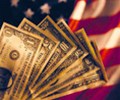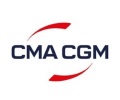Is the U.S. economy heading into a recession?

This week’s mystery: Will there be a recession?
The Federal Reserve is raising interest rates as quickly as it feasibly can to combat inflation. Many economists think higher rates will cool down the economy such that a recession becomes inevitable.
Fed officials have pushed back, saying that a recession isn’t baked in the cake.
Who’s right? Well, so far, it’s a mystery.
The economy was pretty weak in the first half of this year.
At the moment, economists expect growth to pick up in the second half of the year, with Americans having spent freely on a summer of vacations, weddings and family reunions as the coronavirus pandemic, for many, in the rearview mirror.
Rajeev Dhawan, director of the Economic Forecasting Center at the Robinson College of Business at Georgia State University, thinks the economy might falter once the beach umbrellas get put away and kids go back to school.
“We are going to slow. We are slowing,” Dhawan said in an interview.
Consumers will curtail spending after splurging this summer and business travel won’t pick up the slack, he said.
Joseph Gagnon, a former Fed staffer and a senior fellow at the Peterson Institute for International Economics, sees a “50-50 chance” of a recession.
With inflation so high, the Fed has to slow growth and raise unemployment to fight it.
“If they don’t get it just right, you’re going to have a recession,” Gagnon said.
Darwin is worried the Fed will push interest rates up too high.
There is a lot of chatter about the likelihood of a “mild” recession, but Dhawan is worried.
Often recessions start off as mild and “then the bottom falls out,” he noted.
Fed officials say there is an increased recession risk but that it is not their base case.
In his Jackson Hole speech last week, Fed Chairman Jerome Powell said that the fight against inflation is likely to require a sustained period of growth below 2%.
Recessions are, by their very nature, unpredictable because they are “random shocks,” Gagnon said.
Models meant to predict recessions “don’t have a ton of power as far as being able to predict a recession,” St Louis Fed President James Bullard told the Wall Street Journal earlier this month.
Wall Street economists tend to shy away from predicting recessions for self-preservation reasons.
“On Wall Street, if you forecast a recession that doesn’t come – you could lose your job,” said Robert Brusca, chief economist at FAO Economics.
On the other hand, Wall Street can be very forgiving if a recession comes and you didn’t forecast it, he added.
Key data to watch will be whether inflation is taking a bite out of corporate profits, Brusca said.
If businesses find that inflation is eating away their profits and start to lay off workers. This could lead households to curb spending.
Source: MarketWatch

 Hellenic Shipping News Worldwide Hellenic Shipping News Worldwide, Online Daily Newspaper on Hellenic and International Shipping
Hellenic Shipping News Worldwide Hellenic Shipping News Worldwide, Online Daily Newspaper on Hellenic and International Shipping





















 PG-Software
PG-Software